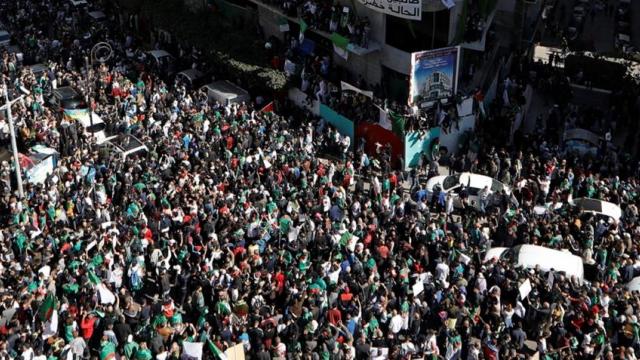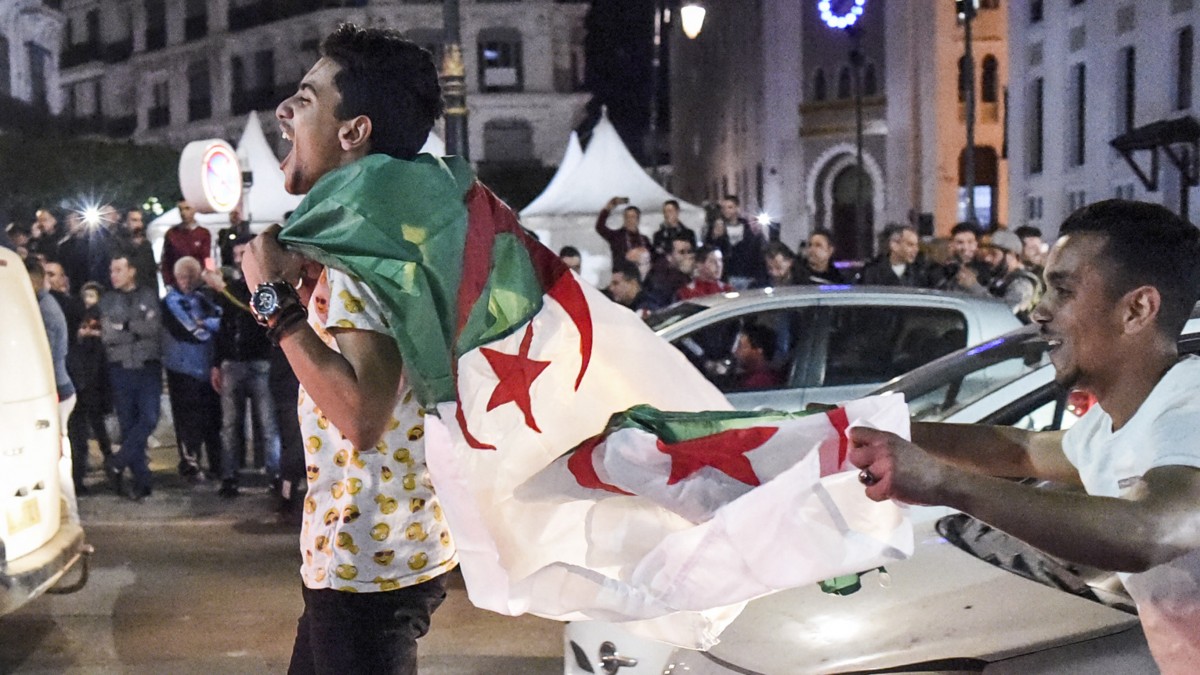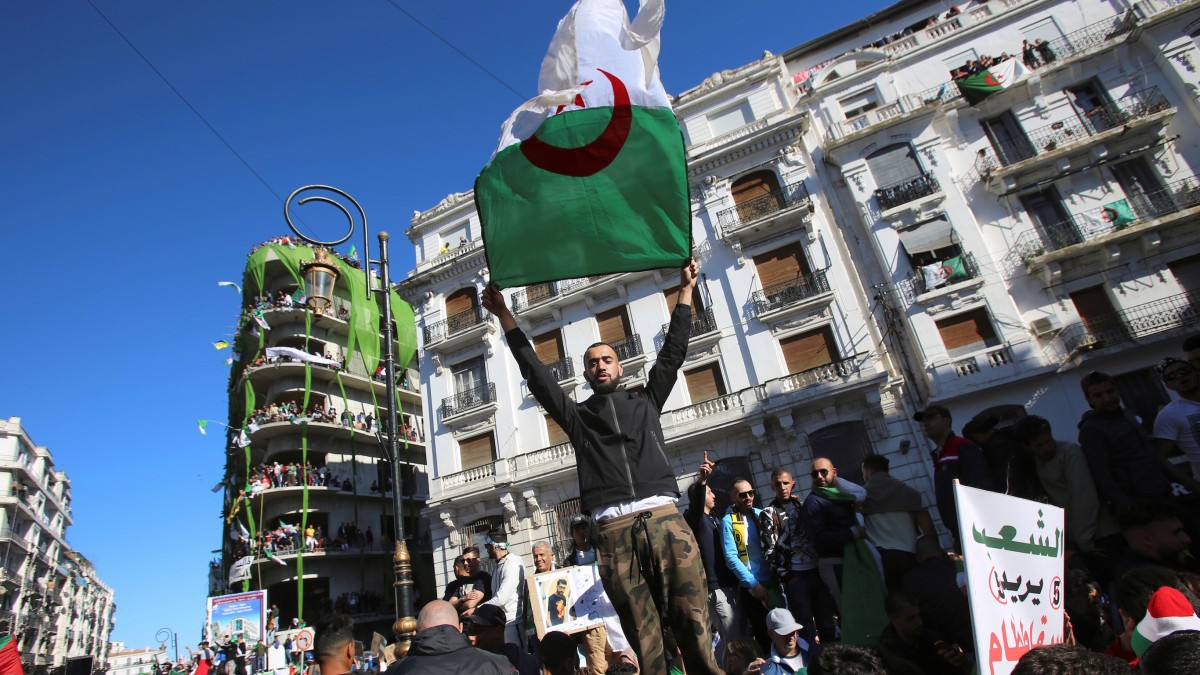
A huge crowd gathered in the Algerian capital to protest for a fourth consecutive Friday demanding urgent change and an end to the rule of President Abdelaziz Bouteflika, who has been in power for 20 years.
Demonstrators crammed streets and squares in central Algiers after Friday prayers, many draped in Algeria's red, green and white flag. Reuters news agency said protesters numbered in the hundreds of thousands, describing the rally as the biggest since the start of the rallies last month.
Demonstrations also took place in Bejaia, Oran, Batna, Tizi Ouzou and other cities.
The rally was the first major test of whether 82-year-old Bouteflika has calmed anger on the streets with his surprise announcement last Monday that he would not seek reelection but would instead cancel the presidential poll scheduled for April 18.
"You pretend to understand us, we will pretend to listen to you," read a banner held aloft by the mostly young demonstrators.
"The options for the authority to stay in power have become nil," law student Kenza Sulaimani was quoted as saying by the DPA news agency. "We don't want to see anyone belonging to the present regime."
While Friday's protest in Algiers was mostly peaceful, a total of 75 protesters were arrested and 11 policemen were lightly injured.
Meanwhile, Algeria's ruling FLN party showed more signs of turning its back on Bouteflika, with one senior figure saying in an interview overnight that the long-serving president was "history now".
Former spokesman Hocine Kheldoun, who talked to Ennahar television late on Thursday, became one of the most senior FLN officials to break with Bouteflika publicly, saying the party had to look forward and support the aims of demonstrators.
A former minister who is familiar with Bouteflika's inner circle told the Reuters news agency that the president could not survive given the pressure building against him.
"Game over. Bouteflika has no choice but to quit now," the former minister said on condition of anonymity.
Vote cancelled
Protesters were initially overjoyed when Bouteflika announced he would not stand again, but his move to cancel the vote prompted accusations of "tricks" and set off a new round of demonstrations.
He has also named a new prime minister, replacing the unpopular Ahmed Ouyahia with former interior minister Noureddine Bedoui, who, on Thursday, defended the postponement of the polls.
The protest movement has been led by students in a country where half the population is under the age of 30 and youth unemployment has spurred anger against a government seen as out of touch.
The military, which has traditionally played a behind-the-scenes power-broker role, has distanced itself from Bouteflika and stayed in its barracks throughout the crisis. It is expected to retain influence under all scenarios.
Bouteflika, who uses a wheelchair and has rarely appeared in public since suffering a stroke in 2013, has promised a "national conference" to carry out reforms.
The president said new elections would be held "before the end of 2019", suggesting he may stay in office for another year.
Originally published by Al Jazeera













